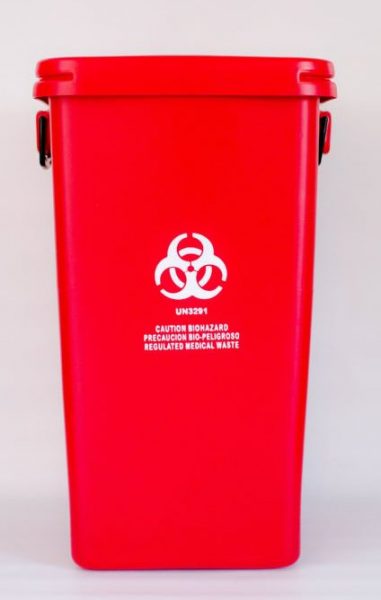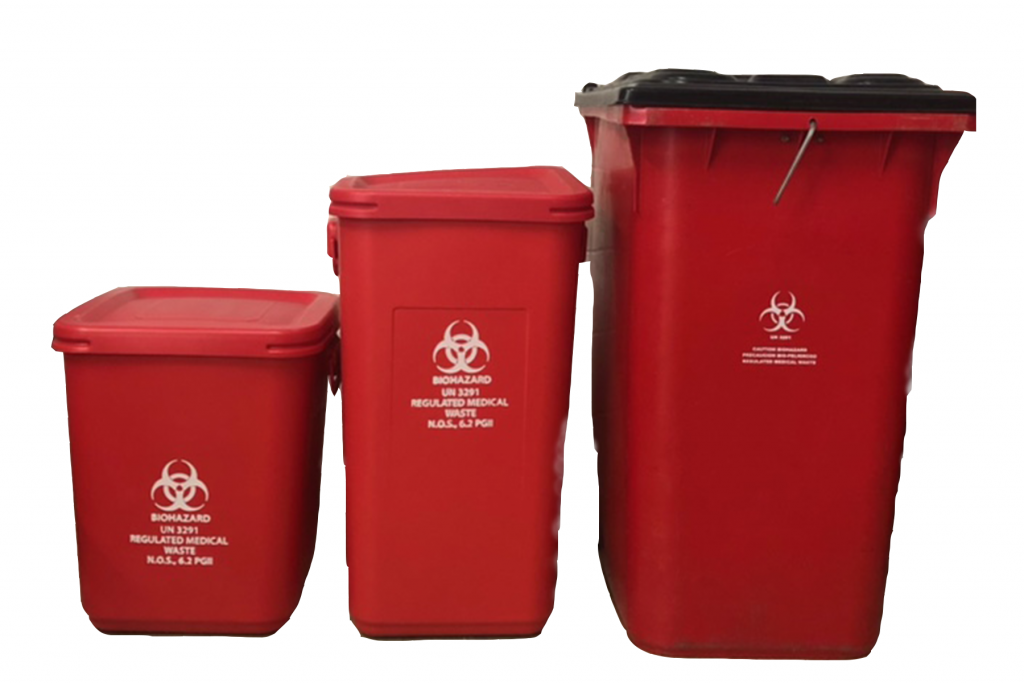Your Relied On Companion: Medical Waste Removal Services Tailored to Your Demands
Your Relied On Companion: Medical Waste Removal Services Tailored to Your Demands
Blog Article
Remain Ahead of Laws: Specialist Advice on Medical Waste Disposal
In a world where the healthcare market is continuously developing, it is important for medical centers to stay in advance of regulations when it comes to the appropriate disposal of medical waste. From recognizing the different categories of clinical waste to implementing the appropriate collection and partition approaches, this discussion will certainly supply workable tips and useful insights to aid facilities remain ahead of laws in the ever-changing landscape of clinical waste disposal.
Understanding Clinical Waste Categories
Understanding medical waste categories is necessary for proper disposal and monitoring in healthcare centers. Medical waste describes any waste created by healthcare tasks that might position a hazard to public health or the atmosphere. It is essential to classify medical waste properly to ensure its risk-free handling, transport, disposal, and therapy.
There are a number of groups of medical waste that health care facilities need to be knowledgeable about. The most typical groups include transmittable waste, pathological waste, sharps waste, pharmaceutical waste, and chemical waste. Each category has particular standards and guidelines for its correct monitoring and disposal.
Infectious waste consists of materials polluted with blood or various other bodily fluids, such as gloves, dress, and research laboratory societies. Pathological waste refers to human cells, body organs, or body components that require special handling and disposal. Sharps waste consists of made use of needles, syringes, and various other sharp objects that can create injury and transfer infections. Drug waste consists of run out, unused, or contaminated medicines that need cautious handling and disposal. Finally, chemical waste includes solvents, disinfectants, and other chemical substances used in healthcare facilities.
Staying Up-To-Date With Regulatory Changes
Staying existing with regulative modifications is vital for health care facilities to ensure conformity and appropriate administration of medical garbage disposal. medical waste removal near me. With guidelines continuously evolving, it is essential for medical care facilities to remain updated to avoid fines, fines, and potential injury to the environment and public wellness
To stay in advance of regulative modifications, health care centers must develop a system for tracking and monitoring updates. This can be done by signing up for regulatory e-newsletters, attending workshops and conferences, and actively taking part in market organizations. Furthermore, centers ought to mark an employee or group in charge of remaining informed and distributing information to appropriate stakeholders.
Normal communication with regulatory companies is additionally essential. Medical care facilities ought to develop relationships with regional, state, and government agencies to ensure they understand any modifications in laws that may affect their waste monitoring techniques. This can be done through routine conferences, participation in public remark periods, and positive involvement with regulatory agencies.
Additionally, medical care facilities need to think about partnering with waste management business that concentrate on medical garbage disposal (medical waste disposal services with WasteX). These firms are typically skilled in the most recent regulations and can offer guidance and support to make sure conformity
Applying Correct Collection and Partition Approaches
To properly manage clinical garbage disposal, medical care centers have to develop correct collection and partition approaches based on regulative guidelines. Executing these techniques makes sure the risk-free handling and disposal of potentially dangerous products, shields the setting, and decreases the danger of injuries and infections to health care workers and the general public.
Proper collection and segregation approaches entail making use of assigned containers and labeling systems. Healthcare centers must supply clearly classified containers for various types of medical waste, such as sharps, transmittable waste, pharmaceutical waste, and non-hazardous waste. These containers need to be color-coded and plainly marked to stay clear of complication and promote easy recognition.
In addition, health medical waste disposal services with WasteX care facilities should educate their personnel on the correct treatments for gathering and segregating medical waste. This includes enlightening them on the different sorts of waste, the proper containers to use, and the importance of adhering to guidelines and regulations. Normal training sessions and correspondence course ought to be performed to make sure that personnel remain updated on best methods.
Additionally, medical care facilities need to establish a system for routine collection and disposal of clinical waste. This may entail partnering with accredited waste management business that specialize in clinical garbage disposal. These business will certainly guarantee that the accumulated waste is delivered and gotten rid of in conformity with regulatory demands.
Choosing the Right Disposal Techniques

Incineration is just one of one of the most effective and common methods for taking care of particular kinds of clinical waste, such as pathological waste and sharps. It entails the regulated combustion of waste at high temperatures, decreasing it to ash. Incineration can launch unsafe pollutants into the air and contribute to air contamination.

Chemical therapy entails the usage of chemicals to decontaminate and neutralize the waste. Microwave treatment uses microwave energy to heat and disinfect the waste.
Making Sure Compliance With Paperwork and Training
After very carefully thinking about the proper disposal approaches for clinical waste, health care facilities should make certain compliance with regulations and lessen ecological effect by carrying out efficient documentation and training procedures. This action is critical in keeping a secure and sustainable setting for both health care workers and the general public.

Medical care employees who deal with clinical waste must obtain ideal training on waste partition, handling, and disposal treatments. By providing extensive training, health care centers can encourage their team to make enlightened decisions and minimize the risk of incorrect waste disposal.
Final Thought
In verdict, remaining ahead of regulations in clinical garbage disposal is crucial for healthcare facilities. medical waste removal near me. Recognizing the various classifications of medical waste, staying upgraded with regulative modifications, carrying out appropriate collection and segregation methods, choosing the ideal disposal approaches, and ensuring conformity with paperwork and look at this website training are all important steps. By following these guidelines, medical care organizations can efficiently manage and get rid of of medical waste in a accountable and risk-free manner
From recognizing the different categories of clinical waste to executing the right collection and segregation approaches, this discussion will certainly supply workable suggestions and valuable understandings to assist facilities stay ahead of guidelines in the ever-changing landscape of medical waste disposal. - medical waste disposal services with WasteX
The most common classifications include contagious waste, pathological waste, sharps waste, pharmaceutical waste, and chemical waste. Healthcare centers need to supply plainly labeled containers for different types of medical waste, such as sharps, infectious waste, pharmaceutical waste, and non-hazardous waste. Healthcare facilities ought to establish a detailed system to tape and track all facets of medical waste disposal, including types of waste generated, quantities, and disposal methods made use of. Medical care employees that manage medical waste should obtain ideal training on waste partition, handling, and disposal treatments.
Report this page